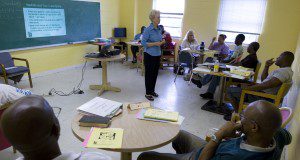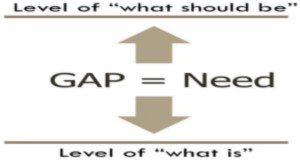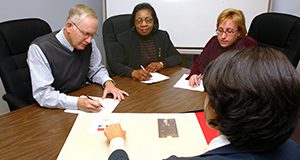This second publication in the Conducting the Needs Assessment series provides Extension educators and other service providers with a foundational underpinning of how the needs assessment fits within the program planning process. Both formal and nonformal educators seeking to develop and deliver an educational program must first be informed of what their audience lacks in order to develop the right curriculum or training, and therefore conducting a needs assessment is a priority in the program development process. This new publication of the UF/IFAS Department of Agricultural Education and Communication was written by Matthew Benge and Laura Warner.
https://edis.ifas.ufl.edu/wc347
Tag: Matthew Benge
Conducting the Needs Assessment, Part 1: Introduction
An integral step in the program development process is identifying the needs of a community. Educators seeking to develop and deliver an educational program must first be informed of what their audience lacks in order to develop the right curriculum or training. This initial publication in the Conducting the Needs Assessment series provides a brief introduction to the planning, implementation, and prioritization of needs within a community or specific clientele group. This new 4-page publication of the UF/IFAS Department of Agricultural Education and Communication was written by Matthew Benge, Amy Harder, and Laura Warner.
https://edis.ifas.ufl.edu/wc340
Assessing the Relationship between Supervisors and Employees
Relationship-based leadership is characterized by trust, respect, and mutual obligation that generates influence between parties. Within UF/IFAS Extension especially, many relationships between supervisors and employees are dynamic and multidimensional, characterized as both supervisory and collegial. Leader-Member Exchange Theory (LMX) is a relationship-based approach that explains leadership as an interaction between both leader and follower. In this new 4-page publication of the UF/IFAS Department of Agricultural Education and Communication, Matthew Benge presents the LMX-7, an assessment instrument to gauge the quality of relationship between supervisors and their employees.
http://edis.ifas.ufl.edu/wc332
Developing a Mentorship Program in Higher Education Institutions
Higher education institutions are currently tackling a growing number of organizational challenges that have forced departments to evolve their business practices. Administrators faced with the need for more diverse programs must decide whether to develop talent internally or recruit new qualified candidates. Given the great cost of faculty searches and the perceived diminishing availability of talented applicants, it is imperative that administrators understand the value of mentoring relationships to fill openings with qualified candidates. However, formal mentoring programs have been slow to develop in higher education institutions. This new 4-page publication defines mentorship, explains the value of mentorship, and describes how mentoring programs can be established. Written by Jonathan M. Orsini, Matthew P. Benge, and Hannah S. Carter, and published by the UF/IFAS Department of Agricultural Education and Communication.
http://edis.ifas.ufl.edu/wc328



